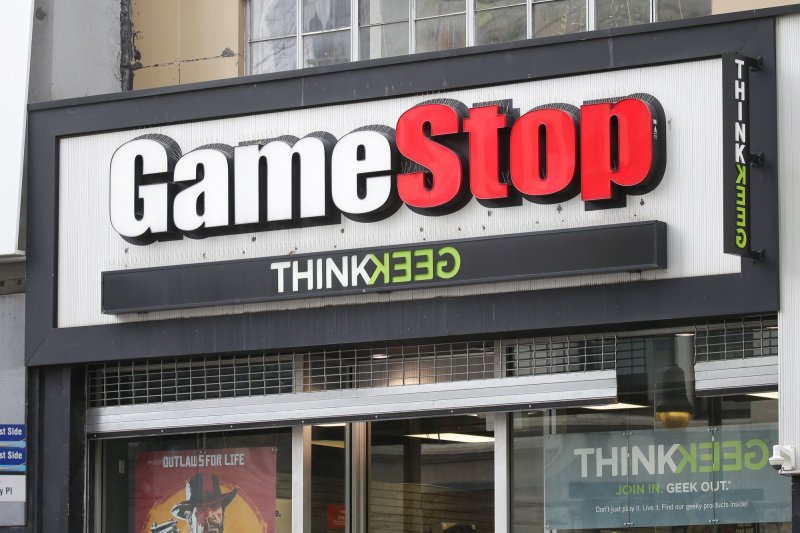A GameStop retail location in New York City is seen on Wednesday. Photo by John Angelillo/UPI |
License Photo
Jan. 29 (UPI) -- The Robinhood stock trading app raised $1 billion in capital from investors overnight on Thursday, a day after it shut down transactions for GameStop stock and other shares out of concern for market volatility.
The no-fee trading app said it would reopen some trading Friday after also drawing on a $500 million line of credit to meet margin requirements for the Depository Trust & Clearing Corporation, which holds collateral for Robinhood's bulk share buying.
"By drawing on our credit lines, which we do all the time as part of normal day to day operations, we get more capital that we can deposit with the clearing houses and that will allow us to enable ideally more investing with fewer restrictions," Robinhood CEO Vlad Tenev told CNBC.
Users through Robinhood drove up stock prices for GameStop and other companies on Thursday, which led the app to cease trades.
The company said it had to put up collateral to cover volatility as stocks for GameStop fluctuated between $483 and $112 on Thursday before trading was restricted.
The restrictions allowed users to sell shares, but not buy new ones. Robinhood said it limited trading because it wasn't able to meet legal deposit requirements that it projected from the abrupt spike in transactions.
Stock for GameStop, a video game retailer, was trading at less than $18 per share at the beginning of this month.
Shares of GameStop and AMC were up significantly in premarket trading on Friday, in anticipation of Robinhood easing restrictions. Just before the market opened, shares of GameStop were selling at about $193.
Robinhood, a private company, was fined $65 million by the Security and Exchange Commission last month for misleading customers about how it makes money.















